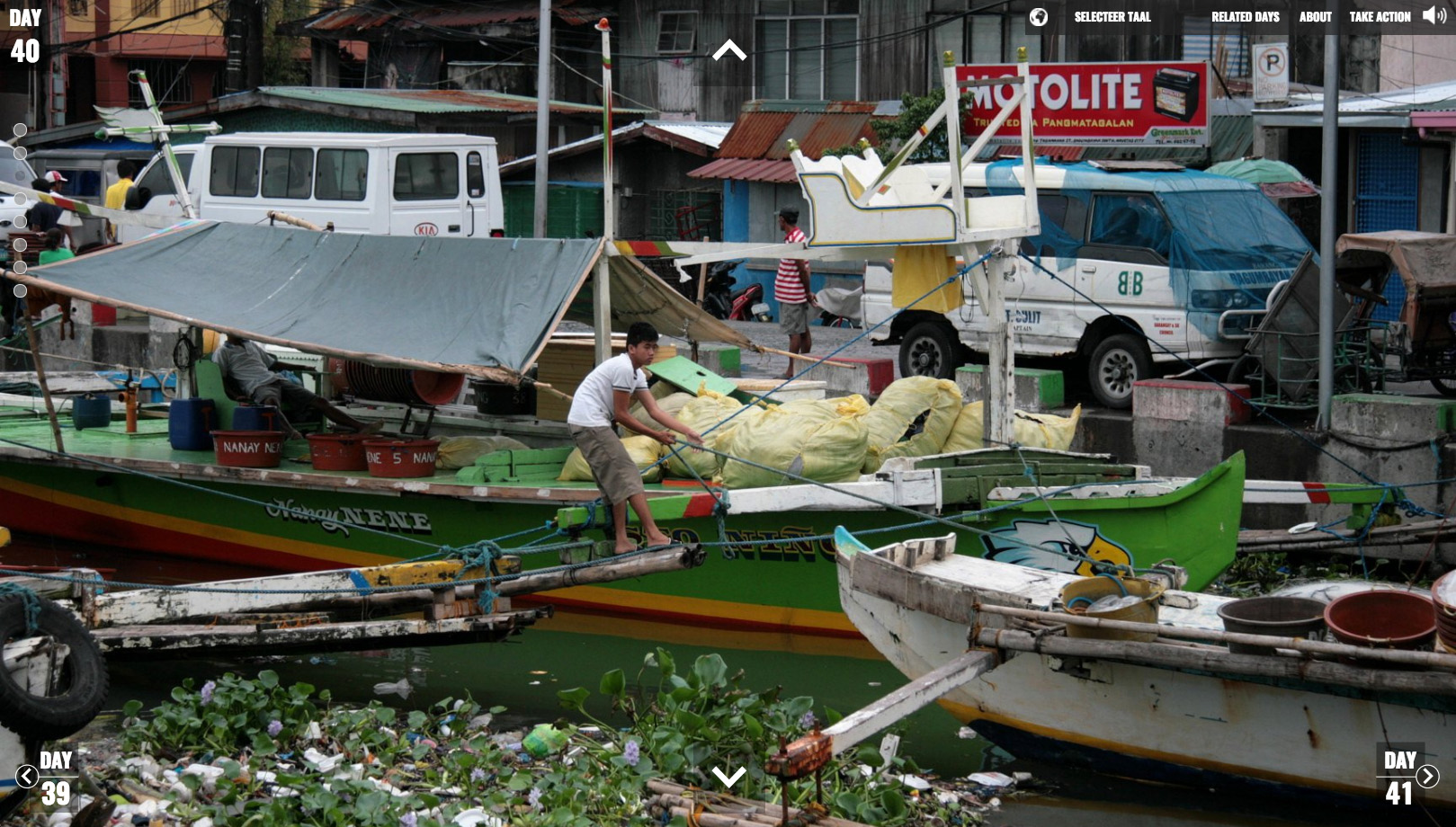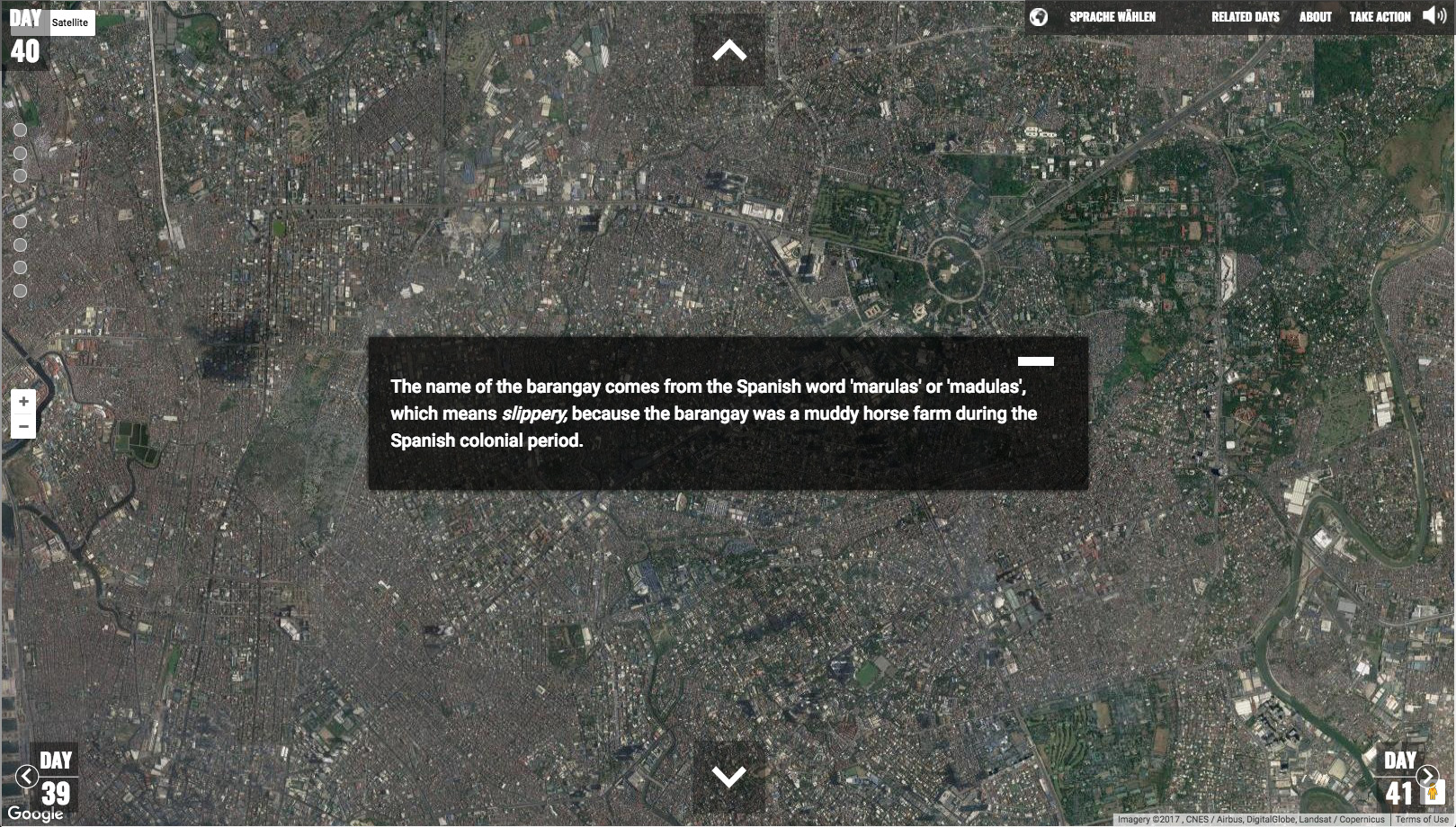Disaster Resilience Journal
“Mother nature always bats last, and she always bats 1,000.”
Robert K. Watson
Climate change is creating a hard, depressing set of realities as water levels rise, deserts spread, and 50,000 year storms pummel our coasts. As scientists, politicians, economists and activists search for solutions, people everywhere are climbing a steep learning curve, finding new ways and means of living through change.
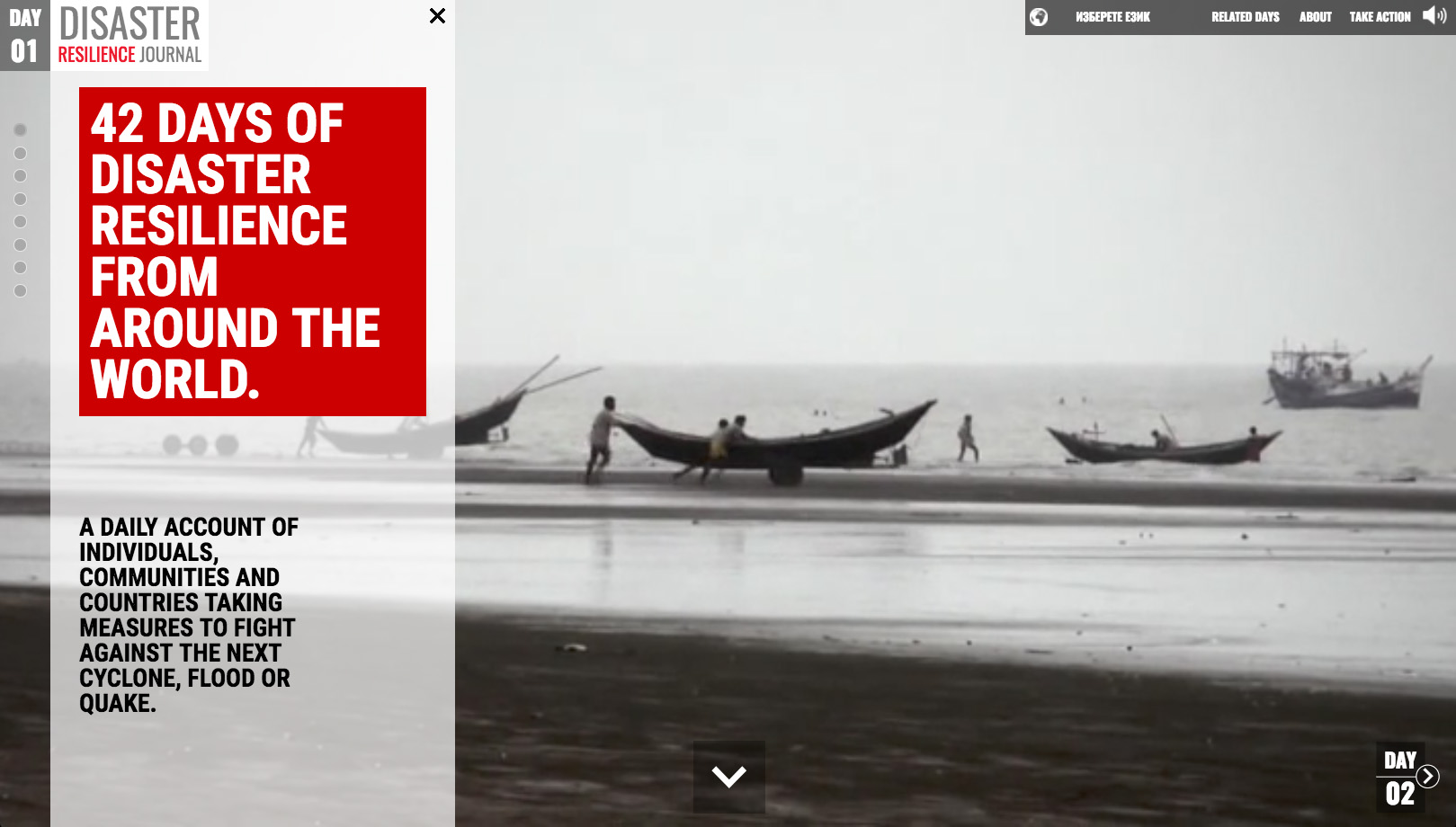
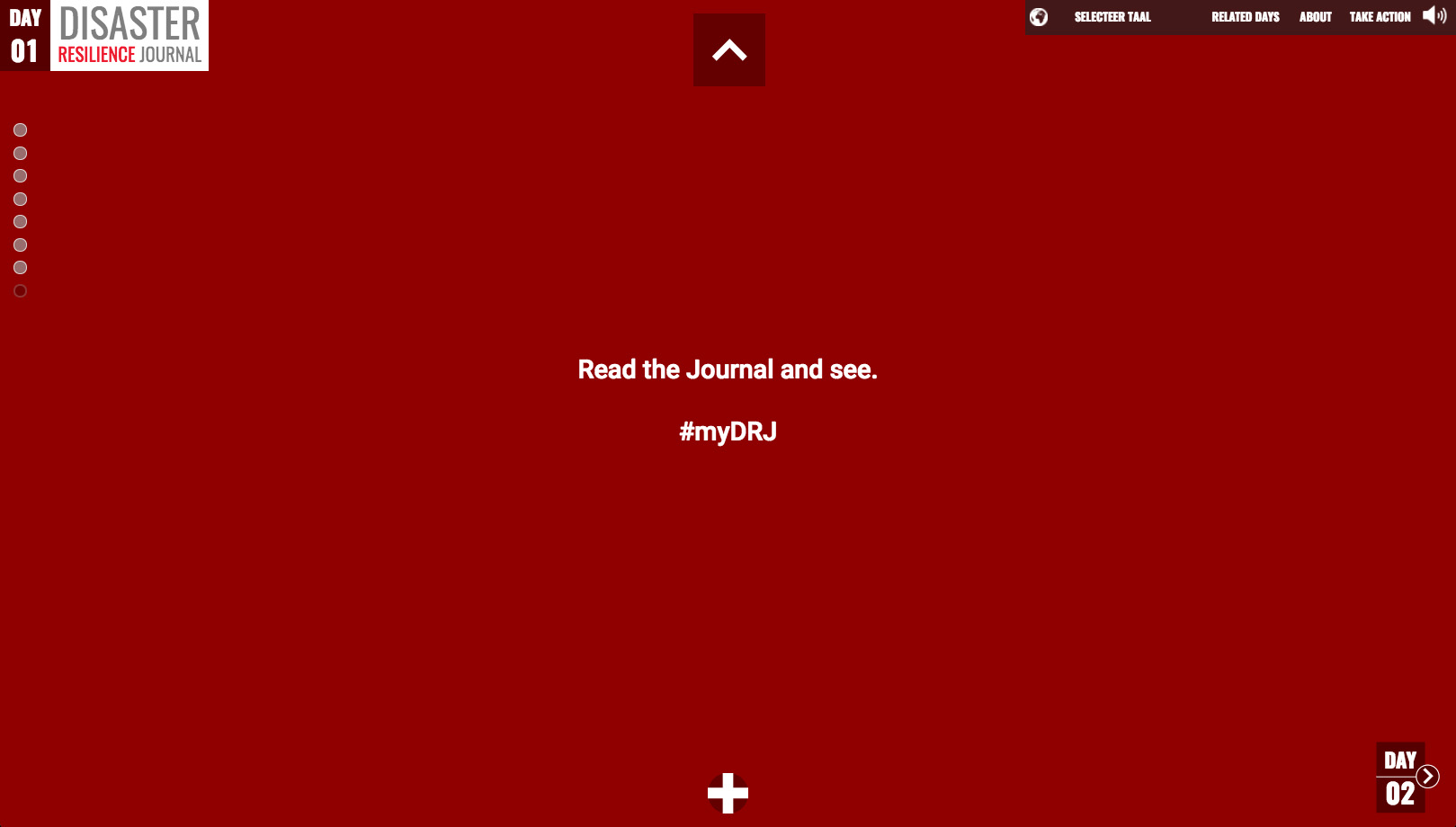
The Disaster Resilience Journal is a set of 42 short online serialized articles, released daily via social media networks, blogs and word of mouth. Each day brings a new photo or video essay, Skype interview, game or quiz, each article with the aim of showing lives lived, dangers faced, steps taken, from rural to urban, east to west, each story like a door in an Advent calendar, to be opened on its particular day.
The Journal is a glimpse into a world of early warning systems and clean water, goats and terraces, mangroves and seeds, new technologies and old traditions. What are the issues that at-risk communities face; what steps are they taking to prepare for disasters and become more resilient; what does their resilience mean and look like?
Risk and vulnerability have not been served out in equal portions around the world, and the most impoverished are the generally most immediately and dramatically affected by climate change. The overall message of the Journal is that we need to see past our own personal horizons, and realize that what happens in Peru or Nepal or Croatia is as important to those that live outside as to those that live within.
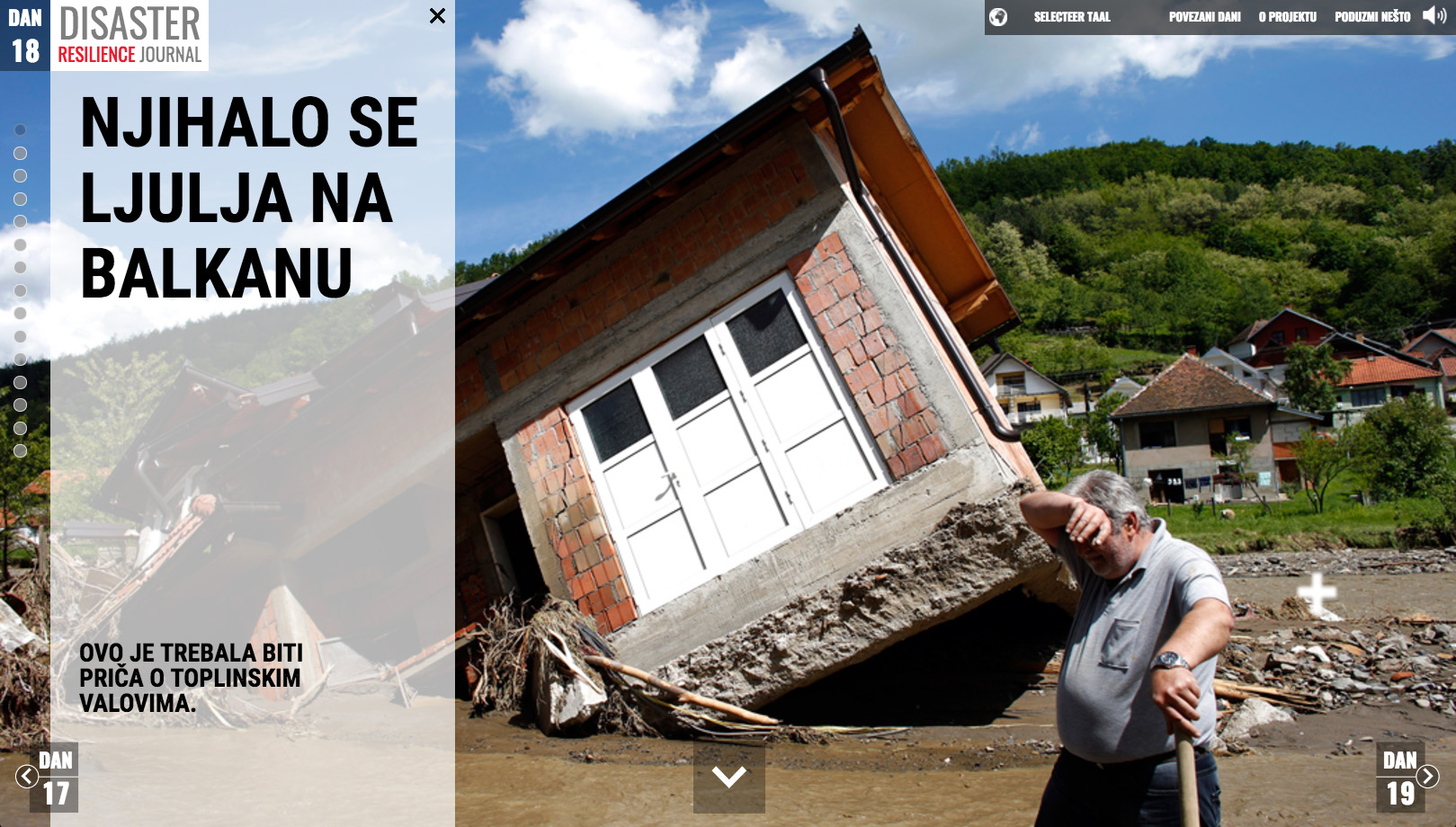
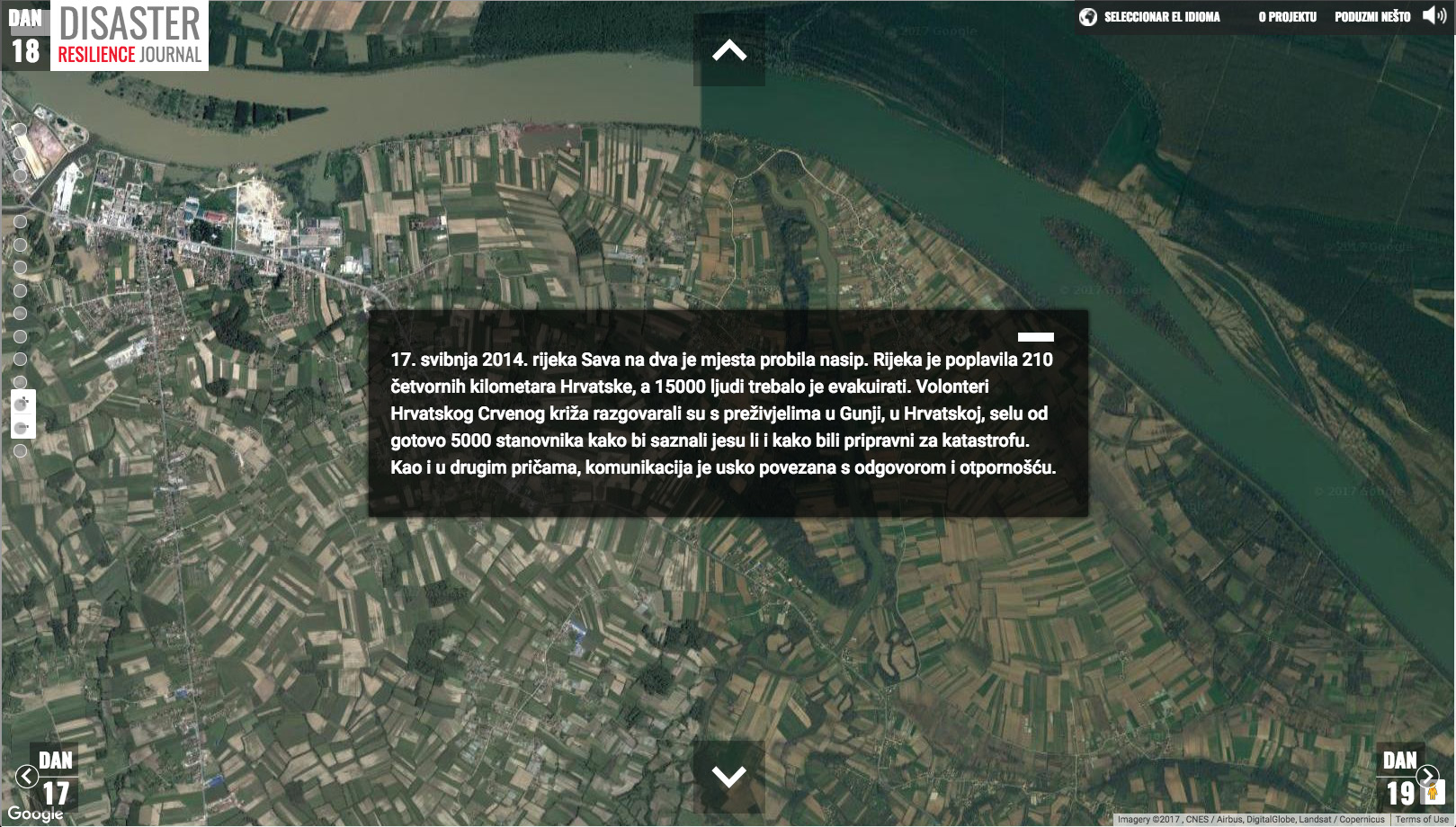
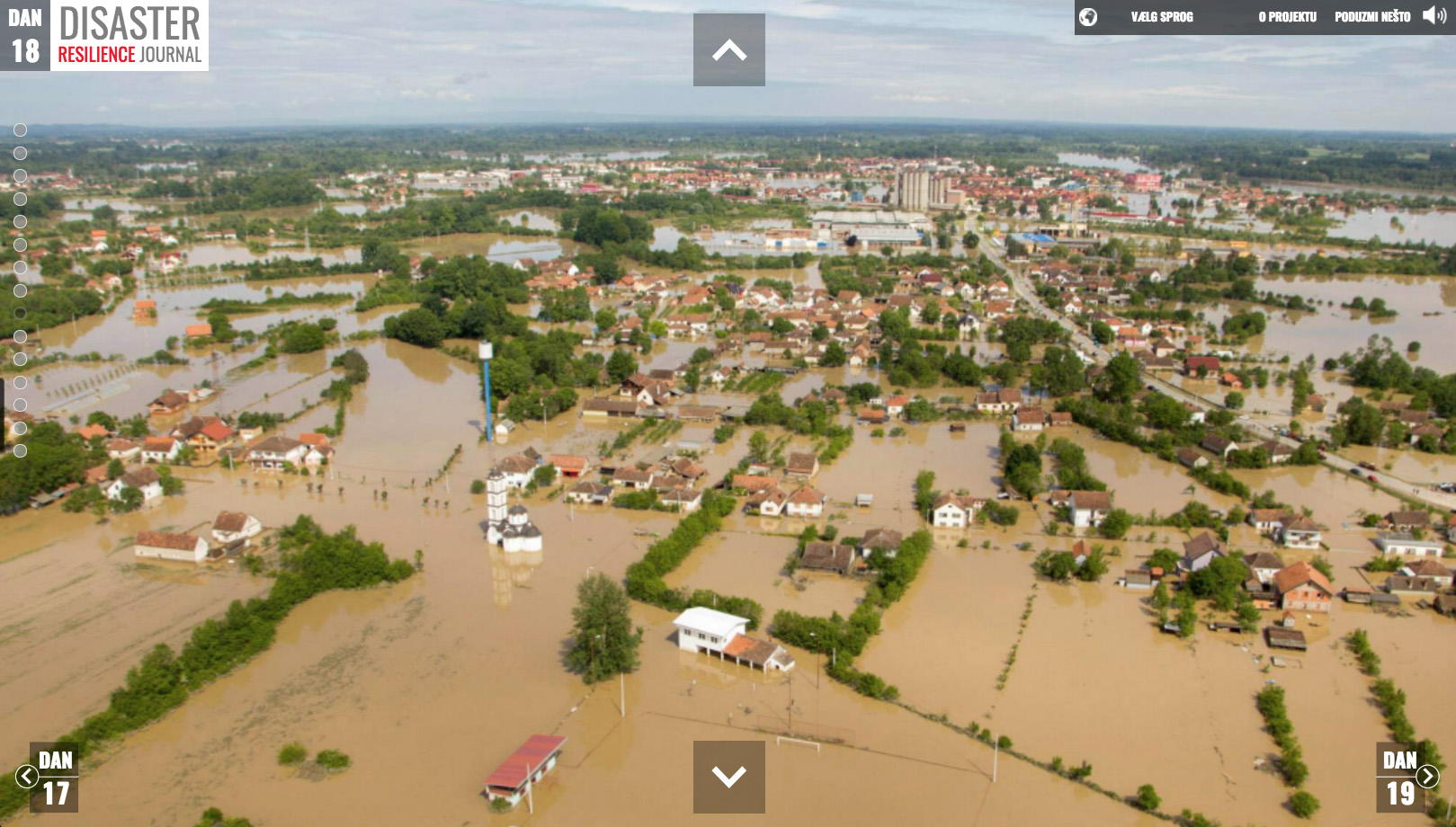
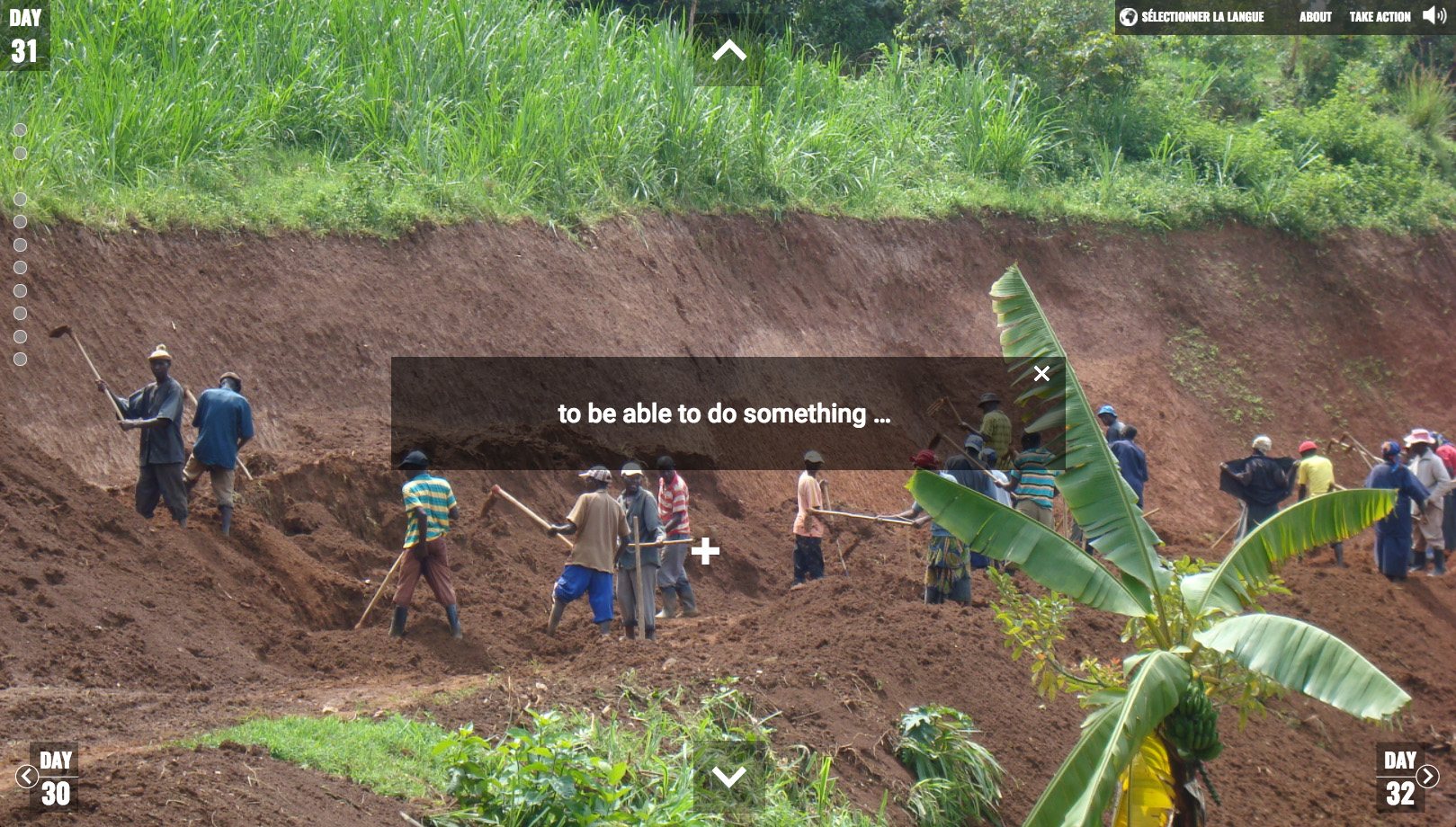
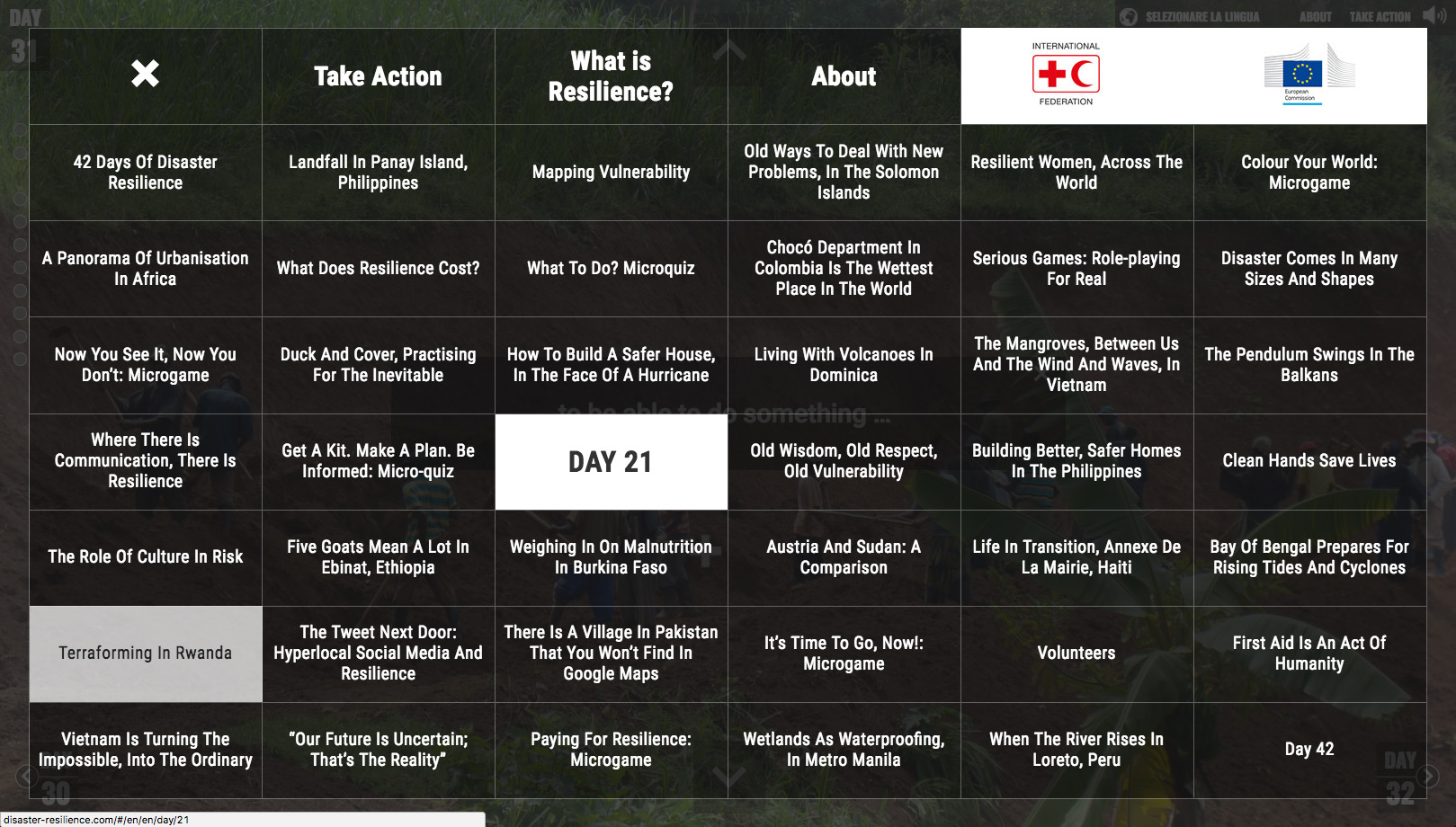
We learned a lot from this project, not the least of which was the re-affirmation that the earth is a beautiful place, and that our lives within it, no matter how precarious, deserve to be lived the best way possible, and that we all have a common responsibility to ensure, in our own small or large way, that this happens.
